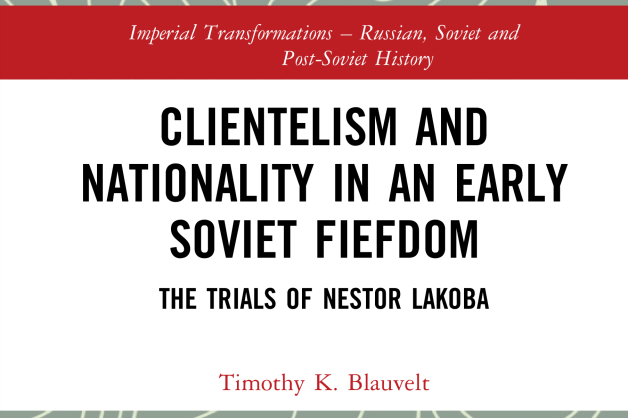"Boundaries of History": Timothy Blauvelt on clientelism and nationality in an early Soviet Fiefdom
Within the framework of the seminar "Boundaries of History" Timothy Blauvelt, Professor of the School of Arts and Sciences of Ilya State University (Georgia), gave a talk on "Clientelism and nationality in the early Soviet periphery," devoted to aspects of the intersection of patronage policy and national policy in Soviet Abkhazia in the 1920s and 1930s on the example of Nestor Lakoba.

Abkhazia is a unique case of diversity localized in a small territory, a center of tobacco production and a place where representatives of the elite rested (from imperial times to the Soviet period). All this is of particular interest to researchers and creates new opportunities for historical analysis.
In his report, based on the recently published book "Clientelism and Nationality in the Early Soviet Fiefdom: the Trials of Nestor Lakoba," Timothy Blauvelt spoke about Abkhazia during the formation and strengthening of Soviet power there (1920-30s). Referring to the Georgian party archives and the personal collection of Nestor Lakoba, Professor Blauvelt explores the establishment of clientelism, patronage in the political structure of the Abkhazian Republic, included in the multilevel interactions of the Soviet-political space. The speaker also spoke about the relations between influential local cadres and the central Bolshevik elites, who could support the creation of powerful vertical-horizontal networks connecting the periphery with the center, the periphery with the periphery or separating them.
The case of Nestor Lakoba stands out from the general national Soviet policy of the 20-30s. He creates new levels of elite division (in particular, based on professional activity and resource allocation), contributing to the creation of a cohesive client network of Lakoba, which could meet both his interests and the national-political interests of the Bolshevik leadership. This network could fulfill orders and at the same time cooperate and/or exclude potential local competitors, maneuvering and maintaining the support of local voters, both in elite networks and among the local population. Local titular elites acting as representatives and emissaries of the center were allocated the resources necessary to mobilize the population, including funds for the creation and dissemination of national narratives.
Interacting simultaneously with both the local population and the Greeks living on the territory of the Abkhazian SSR, Nestor Lakoba maneuvered between them and situationally used different discourses. For example, building a republic promised the Greeks to oust them from socio-economic relations with the local population, while the Greeks would prevent the Abkhazians from preserving traditions and building Soviet national otherness. Responding to such challenges to the Greeks and Abkhazians, Nestor Lakoba binds them into a socio-economic clientele.
Through the experience of Nestor Lakoba's group, the author examines the intersection of clientelism and nationality, the tension between federalism and local sovereignty inherent in the "post-imperial" Soviet federative structure, and the role of personalized power (or personal regime) on the early Soviet periphery.
Announcement

Research Assistant
